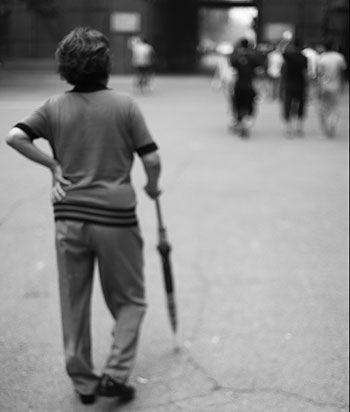
At 46, Gagan Ahuja did not quite expect that he would wake up one day to find his joints aching. Somehow, he pulled himself through the day but when the problem persisted the next day as well, he went to his doctor. He was told that a number of otherwise healthy people complain of joint pain during monsoon, more so if their busy lives do not allow them time to exercise.
Have you ever hear someone say, "It's going to rain… I can feel it in my joints"?
Did you look at them like they were talking strange? Well, there might be some truth in that expression.
Monsoon is associated with increase in humidity and changes in barometric pressure in the environment.
And some people do feel the effects of this pressure build-up in their joints.
Changes in barometric pressure directly affect the joints in the human body.
The result could vary from a slight joint misalignment to a severe arthritic breakdown.
Although every individual is prone to joint pain in monsoon, patients with rheumatoid arthritis are the most affected by high humidity and high pressure.
Similarly, those with osteoarthritis are affected by high humidity, while those with fibromyalgia feel the burden of high pressure, according to studies conducted in each of these groups.
Temperature fluctuation is the primary reason for such joint pains and long hours in an air-conditioned environment can only worsen these pains, especially if it is a bit chilly outside.
It is important to know that the cartilage cushioning the joints gets nutrition by walking.
So, people whose jobs require them to sit for long hours should leave their chairs once every 40 minutes.
People aged 60 and above are more vulnerable to this problem, but others can also be at risk. Remember, joint pains worsen if the individual lives a dormant lifestyle.
QUICK TIPS
- Maintain an optimum temperature of around 22.22 degree Celsius in your house and office.
- A massage with special medicated herbal oils is also helpful in relaxing and rejuvenating the joints.
- Consume natural diuretics like barley water, jasmine tea, rose decoction and barley sattu. These reduce the pressure on the joints by decreasing the water content and hence reduce the swelling of the joints.
- Consume food that is light on the liver and is easy to digest, like boiled corn, brown rice poha with soya, roasted channa, moong dal khichri and steamed moong sprouts.
- Live a healthy lifestyle and exercise regularly.
- Arthritis patients often require their medicine dose to be modified in this season and should consult their doctor.
Dr Anil Arora is head of unit and lead consultant, department of orthopaedics, Max Super Speciality Hospital, Patparganj, Delhi.
Photograph: Zuruimei/Creative Commons
Lead image used for representational purposes only.












 © 2025
© 2025